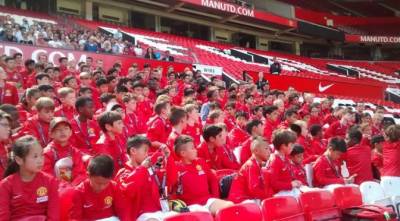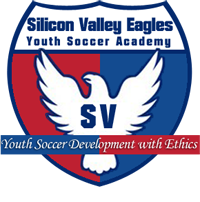Silicon Valley Eagles
The Silicon Valley Eagles Soccer Academy blog is a great source of soccer coaching tips, parents and players improvement tips and advises, and updates on the soccer world news.
BEHAVIORS OF ELITE SOCCER PLAYERS
- Font size: Larger Smaller
- Hits: 3468
- Subscribe to this entry
- Bookmark
 Making it in soccer is difficult. Training programs and players have improved dramatically in the past 15 years. Worldwide exposure has grown the sport and our knowledge about the development of elite athletes is progressing every day. To make it to the elite levels of soccer it takes a combination of skill, resources, luck, and opportunity. But even on this treacherous development journey, a player still has a lot of control. Through observation and research, we have learned that elite youth athletes exhibit similar thinking processes and behavior.
Making it in soccer is difficult. Training programs and players have improved dramatically in the past 15 years. Worldwide exposure has grown the sport and our knowledge about the development of elite athletes is progressing every day. To make it to the elite levels of soccer it takes a combination of skill, resources, luck, and opportunity. But even on this treacherous development journey, a player still has a lot of control. Through observation and research, we have learned that elite youth athletes exhibit similar thinking processes and behavior.
As a professional trainer, I have numerous stories about players that have progressed to the next level. The problem is that anecdotal evidence is heavily biased and not necessarily accurate for generalization. But when on-field observation aligns with empirical research, then we know we are starting to discover important truths about the elite youth player. In learning and athletic development, research confirms that the best performers are successful at self-regulation. Self-regulation involves processes that enable individuals to control their thoughts, feelings, and actions. Effective self-regulators can adapt and control behavior/thinking to counter responses that might prove detrimental to performance. For example, a youth player shooting a penalty kick to win a game is a stressful situation. An effective self-regulator could probably calm their emotions, disregard parents screaming “kick it,” and rely on their training to execute the task at hand. As a result, this athlete would increase their chances of scoring the goal. In sport, effective self-regulators are typically the best learners. Athletes who better control their learning and environment are more often capable of maximizing their athletic potential and thus succeeding in high performance settings. This is relevant to elite sport where you are constantly battling to earn or maintain a spot.
Behaviors and cognitive (thinking) processes of successful elite youth athletes:
High Self-awareness. They self-monitor consistently before, during, and after training/games. Critical of strengths and weaknesses and aggressively pursue methods to improve. Behaviors include seeking specific information from coaches, attention to detail in training, and belief in improving through training.
Proactive learners. These athletes are fully engaged in their learning environment by asking questions and try to maximize individual and team learning during every session. Behaviors include coaching of teammates, passion during training, and verbally approaching coach during instruction and exercises.
Willingness to expend and sustain effort over years. Soccer development is a long-term objective that can take many years (13+). Commitment, discipline, resilience, and social support are factors that facilitate progression in elite youth soccer. These athletes have a growth mentality where they are constantly working on improving in order to achieve long-term goals.
Follow instructions and effectively perform in competition. Coaches’ perceptions of behavior are crucial because they are the decision makers on playing time, strategy, and tactics. In elite soccer, a player must be able to receive and apply instruction even in stressful environments. Effective youth players understand that listening to coaches is vital to success so they devise strategies to apply criticism and instruction (and other strategies to ignore obnoxious parents).
In our program, we have dozens of players that possess the skills and athleticism to be successful at the next level. The pertinent question always seems to be whether they have or are willing to develop the self-regulation behaviors and cognitive abilities to truly propel them on their path. As part of our philosophy, we treat the cognitive components of the game as the most important aspect in long-term performance success.
Improving self-regulation abilities should be top priority for any elite training program. The development of these skills comes from a complicated interaction between the athlete, environment, player-trainer relationships, and support systems. These skills should be taught and refined throughout years of training. As the athlete progresses into higher levels of their sport system, the better they will have to be at self-regulation in order to be successful. Teaching and educating on self-regulation can begin early with focus on improving these skills incrementally over the long term.
Our best players are committed, disciplined individuals who have found their own inner motivation to succeed. They train to the point of exhaustion and then ask what they need to improve on. They know themselves intimately as a player and honestly assess how they fit within the levels of competition. They accept that their development journey will be riddled with adversity but they are willing to give full effort over years and years of training. They know their role as a player and understand how they fit in the training environment. They breakdown sometimes and have effective support systems to help them cope. They are constantly competing and want to succeed. Conflict and adversity are motivators and rarely a deterrent. They believe they control their future.
The truth is that these athletes did not come to us this way. Not a single one. They developed and refined these skills over time. Now they have become elite youth athletes and their dream of playing at the next level is becoming a reality. The path is not an easy one, but players have more control than they think. If you want to be a top player, you must think and behave like one.







